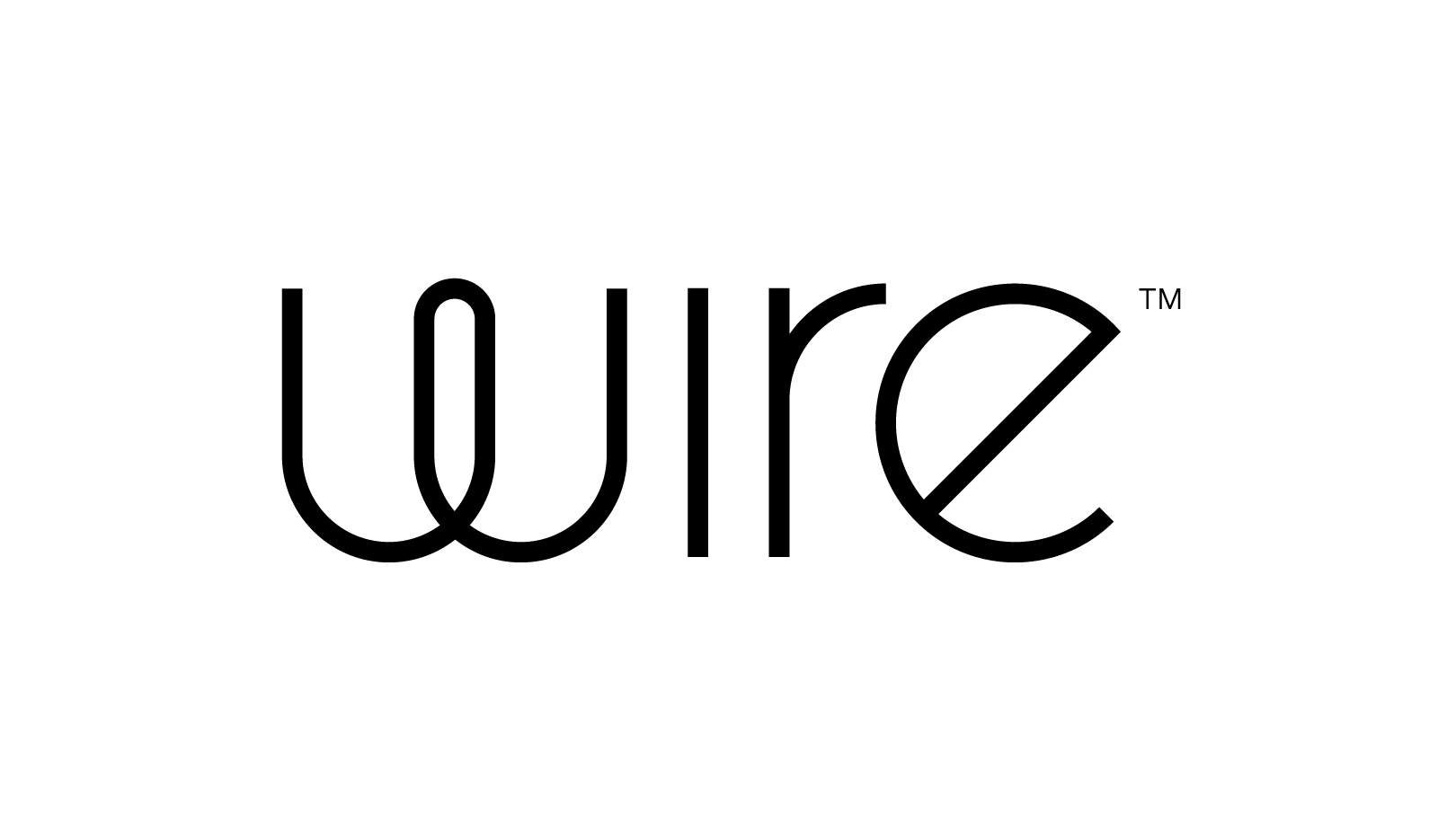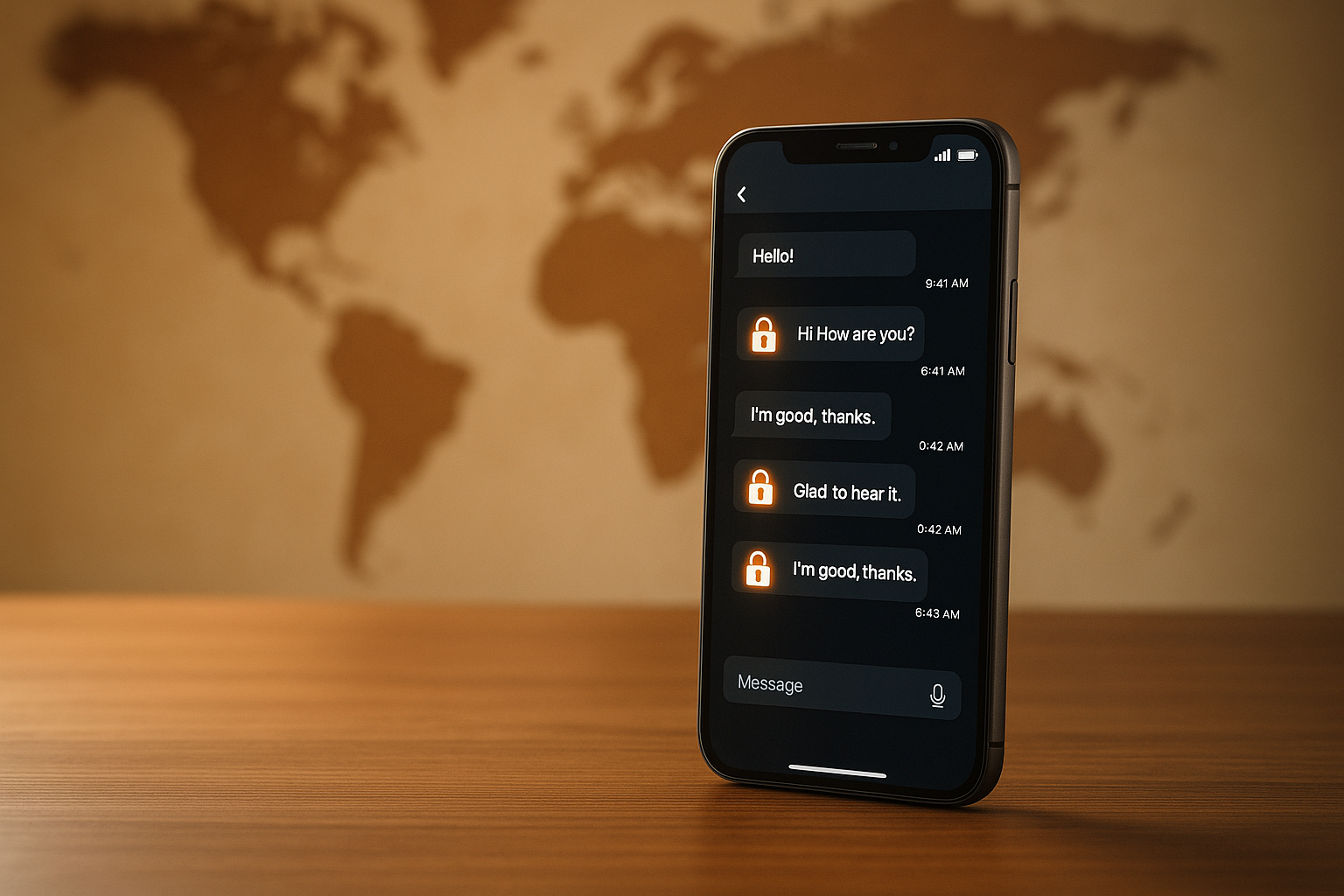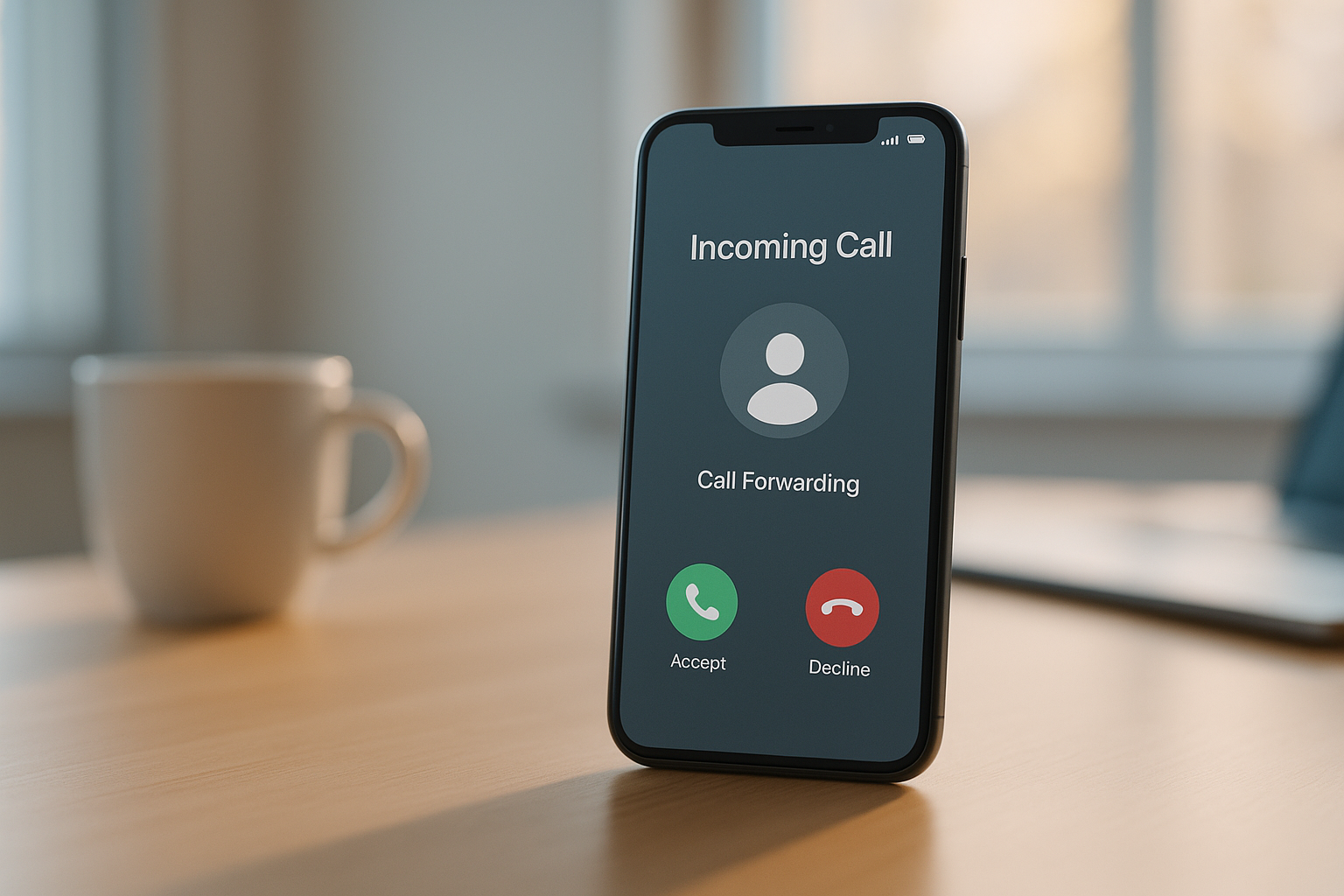Top Self-Hosted Messaging Apps with Encryption: Complete Guide 2025
Looking for secure messaging apps that give you full control over your data? Self-hosted messaging platforms with end-to-end encryption are the answer. These apps let you host your own servers, ensuring privacy, compliance, and data sovereignty. Here are the top options:
- Element: Built on the Matrix protocol, offering end-to-end encryption, self-hosting, and open-source transparency. Trusted by organizations like the French government.
- Tox: Peer-to-peer messaging with no central servers. Includes encryption by default but lacks formal audits.
- Keybase: Combines encrypted messaging, file storage, and identity verification. Limited self-hosting due to proprietary server components.
- Signal (Self-Hosted): Known for its Signal Protocol encryption, but self-hosting requires technical expertise.
- Wire: Focused on encrypted group chats and collaboration, with strong self-hosting support.
Quick Comparison Table
| App | Open Source | Encryption Type | Self-Hosting Support | Group Chat | Voice/Video Calls | Self-Destructing Messages | Platforms |
|---|---|---|---|---|---|---|---|
| Element | Yes | End-to-End | Yes | Yes | Yes | Yes | Windows, macOS, Linux, iOS, Android |
| Tox | Yes | End-to-End | Yes | Yes | Yes | No | Windows, macOS, Linux, iOS, Android |
| Keybase | Partially | End-to-End | Limited | Yes | No | Yes | Windows, macOS, Linux, iOS, Android |
| Signal | Yes | Signal Protocol | Limited | Yes | Yes | Yes | Windows, macOS, Linux, iOS, Android |
| Wire | Yes | Proteus Protocol | Yes | Yes | Yes | Yes | Windows, macOS, Linux, iOS, Android |
Key Takeaway: Self-hosted messaging apps provide strong encryption and greater control over your data. Choose based on your technical skills, compliance needs, and features like group chats and video calls.
Build Your Own Private, End to End Encrypted Messaging App!
::: @iframe https://www.youtube.com/embed/aBtZ-eIg8Yg :::
1. Element
Element is a secure, self-hosted messaging platform built on the Matrix project, trusted by millions around the world.
End-to-end encryption
Element prioritizes security by offering end-to-end encryption for all communications. This means every message, file, and call is encrypted using Olm and Megolm cryptographic ratchets, alongside cross-signed device verification. The result? Only the intended recipients can decrypt and access the content. Its encryption has been independently audited by the NCC Group, ensuring a high standard of protection, with messages decrypted on a per-device basis.
"At Element, we believe end-to-end encryption should be transparent, verifiable, and built into every layer of communication." – Patrick Alberts, Chief Product Officer
Next, let's dive into how Element's self-hosting options give organizations complete control over their communication systems.
Self-hosting capabilities
Element empowers organizations by offering self-hosting options, enabling full control over their communication infrastructure. Whether deployed on-premise or in a private cloud, this setup ensures that your data stays within your own secure environment.
"Our self-hosting solution gives you full control over your real-time communication infrastructure. Strengthen your security, maximise your compliance and retain complete ownership of your data."
To meet diverse needs, Element provides flexible hosting options with a range of pricing tiers, accommodating everything from small teams to large enterprises.
Real-world examples highlight how organizations have successfully implemented Element. For instance, Tchap - a secure messenger used by the French government - supports over 300,000 civil servants through Element's self-hosted solution. Similarly, the University of Innsbruck has deployed Element to establish secure, real-time communication across its campus.
Beyond hosting, Element's open-source foundation further strengthens its security and reliability.
Open-source transparency
Element's open-source approach ensures transparency and trust. By contributing nearly all of its code to the Matrix project, Element allows global security experts and developers to review, refine, and enhance its software. This openness not only enables independent security evaluations but also ensures that vulnerabilities are identified and addressed quickly. As the US National Institute of Standards and Technology wisely notes:
"System security should not depend on the secrecy of the implementation or its components."
Support for group chats and collaboration
Element also supports secure, unlimited group chats, as well as voice and video calls, all while maintaining persistent identity verification to ensure communication stays protected.
2. Tox
Tox is a peer-to-peer messaging protocol that operates on a distributed network, completely bypassing the need for central servers. Back on August 15, 2013, Tox even made it to the fifth spot on GitHub's trending list.
End-to-end encryption
One of Tox's standout features is its default end-to-end encryption for all messages. It uses the Networking and Cryptography library (NaCl) alongside a robust set of encryption tools: curve25519 for key exchanges, xsalsa20 for symmetric encryption, and poly1305 for message authentication. Together, these ensure both security and perfect forward secrecy. For added protection, temporary key pairs are used for connections with non-friends.
Open-source transparency
Tox takes transparency seriously. Its open-source code allows anyone to dive in and verify its security measures. The reference implementation is licensed under GNU GPL-3.0-or-later, and its encryption methods rely on publicly available libraries that can be independently reviewed. Staying true to its mission to "promote universal freedom of expression and to preserve unrestricted information exchange", Tox remains a community-driven project.
"Tox is free software. That's free as in freedom, as well as in price."
However, it's worth mentioning that Tox has not undergone formal third-party cryptographic audits. Users should remain cautious and use the network at their own discretion. This open and decentralized approach also supports Tox's self-hosting capabilities.
Self-hosting capabilities
Tox is built for decentralization, and self-hosting is baked right into its design. Its peer-to-peer architecture eliminates the need for traditional servers. Instead, user Tox IDs - generated from their public keys - are stored across a distributed hash table (DHT). Onion routing is then employed to locate these IDs, adding an extra layer of privacy. Since the network doesn't rely on any centralized infrastructure, it continues to function securely as long as there are active users connected to it.
3. Keybase
Keybase is a platform that brings together secure messaging, file storage, and identity verification, all grounded in cryptography. It operates on cryptographically linked identities to ensure privacy and security.
End-to-end encryption
Every message and file shared on Keybase is encrypted using advanced protocols like XSalsa20, Poly1305, Ed25519, and SHA512. This ensures that your data remains private and intact, even if the servers are compromised. The platform's encryption methods lean on the weak collision-resistance of SHA256 and the secure Go implementation of the NaCl cryptographic library.
"You don't need to trust Keybase. You only need to trust math." – Chris Dixon, in his announcement of a $10.8 million investment in Keybase
Keybase also uses public Merkle trees to manage keypairs, public identities, and file system states. This system ensures that Keybase has no access to private file names or contents, as all data is encrypted before being stored - even in local device journals. This encryption-first approach forms the backbone of its security.
Open-source transparency
While Keybase offers a fully open-source client, its reliance on proprietary server components raises some transparency concerns. To address trust issues, Keybase uses Key Transparency (KT), a publicly auditable system for distributing sensitive cryptographic data like public keys. Additionally, the client software is designed to verify the integrity of user signature chains, alerting users to any potential tampering or rollbacks.
Self-hosting limitations
Keybase's self-hosting capabilities are restricted due to its closed-source server architecture. While the client software is open source, the proprietary nature of the servers prevents independent deployment. This limitation makes Keybase less ideal for organizations that require complete control over their infrastructure. However, the platform does store user data - such as public signatures - in a standardized format and employs a Merkle tree to detect and prevent unauthorized rollbacks of signature chains.
Group chats and collaboration
Keybase stands out with its robust collaboration tools, including 250GB of encrypted cloud storage paired with secure messaging. Its Keybase File System (KBFS) enables seamless file sharing by allowing users to sync specific directories or files to their local devices while keeping everything encrypted. A unique "root redirector" feature makes it possible to share global paths to KBFS files that adapt to the user accessing them, supporting both Linux and macOS platforms. All collaborative activities are safeguarded by the same encryption standards applied to individual communications, ensuring team security at all times.
4. Signal (Self-Hosted Implementations)
Signal is widely recognized as one of the most secure messaging platforms available, and its self-hosted versions take privacy to another level. By hosting Signal on your own servers, you gain complete control over your communication environment. This setup ensures transparency, eliminates reliance on third-party servers, and allows organizations to build private messaging systems tailored to their needs. However, self-hosting Signal isn't a straightforward task. It requires navigating limited documentation and dealing with complex configurations. Let's break down Signal's encryption, the challenges of self-hosting, and its capabilities for team collaboration.
End-to-End Encryption
Signal's core encryption remains consistent across both the standard app and self-hosted setups. Powered by the Signal Protocol, the platform uses advanced cryptographic tools like Curve25519, AES-256, and HMAC-SHA256. These ensure confidentiality, integrity, and authentication, while also offering forward secrecy and protection against post-compromise vulnerabilities.
For added security, users can manually verify public key fingerprints through external channels. The "sealed sender" feature further enhances privacy by hiding sender information, reducing metadata exposure. Group chats are secured using a blend of pairwise double ratchet encryption and multicast encryption, ensuring all communications remain private.
Self-Hosting Challenges
Setting up a self-hosted Signal server demands advanced technical skills and careful infrastructure planning. A recent test using Docker, Ubuntu VPS, NGINX, and Let's Encrypt illustrated just how challenging this can be. The process isn't for the faint of heart.
Signal's libsignal library, which is available under the AGPL-3.0 license, adds another layer of complexity. This license requires that any software using the library must also be open-sourced under the same license. This can complicate commercial deployments or custom implementations.
Open-Source Transparency
Signal's commitment to open source is evident, as its client applications are fully accessible for review and modification. However, self-hosting the entire Signal service presents significant hurdles. Limited documentation, a complex software stack, and restricted customization options make this a daunting task. Building a custom server using the libsignal library requires not just initial expertise but also ongoing maintenance to ensure compatibility with mobile clients, handle updates, and manage dependencies.
Group Chats and Collaboration
Self-hosted Signal implementations include full support for group chats, maintaining end-to-end encryption for all participants. This makes it an excellent solution for businesses that need to keep sensitive communications within their own network. Beyond messaging, organizations have the freedom to define custom data retention policies and ensure private discussions stay secure. However, the technical demands mean this setup is most practical for teams with dedicated IT resources and a strong focus on privacy.
Interest in secure communication tools like Signal continues to grow. For example, in January and February 2025, Signal downloads in the United States surged by 20% on Android and 50% on iOS compared to the same period in 2024. This trend reflects a rising awareness of the importance of protecting communication privacy.
5. Best Alternatives for Self-Hosted Communication
When it comes to secure and customizable communication, self-hosted messaging apps stand out as top alternatives. These platforms are especially appealing to organizations that prioritize data control and privacy. Unlike traditional cloud-based services, self-hosted solutions let businesses keep their communication data within their own infrastructure, ensuring compliance with industry regulations and addressing privacy concerns.
Wire
Wire offers encrypted group chats and file sharing tailored for business use, with excellent self-hosting support. The platform combines robust security with powerful collaboration tools, making it ideal for organizations that need both privacy and functionality.
Jitsi Meet
While primarily known for video conferencing, Jitsi Meet provides excellent self-hosting capabilities and can complement messaging platforms with secure video communication features.
By offering enhanced control and privacy, these alternatives go beyond the limitations of conventional hosted services. For more self-hosted communication solutions, explore our self-hosted solutions category.
End-to-End Encryption
A cornerstone of self-hosted messaging platforms is end-to-end encryption, which ensures that only the intended recipients can decrypt and read messages. This kind of protection is ideal for users who value privacy, as it safeguards the content of messages and detects any tampering during transmission. However, it's worth noting that while message content is secure, metadata - such as sender and recipient details or timestamps - may still be visible.
"End-to-end encryption is a crucial technology for securing communications in messaging apps. It offers significant benefits for privacy and security, allowing users to communicate with confidence." – RocketMe Up Cybersecurity
Self-Hosting Capabilities
Self-hosted messaging apps provide organizations with complete control over security protocols. Typically available as open-source software, these platforms can be downloaded, customized, and deployed to meet specific needs. This eliminates reliance on third-party data management, enabling companies to implement their own security measures and compliance protocols. With self-hosted platforms, businesses can ensure that their communications remain entirely within their control.
Open-Source Transparency
Transparency is another major advantage of self-hosted messaging platforms, thanks to their open-source architecture. This allows security teams to audit the code, verify encryption methods, and identify potential vulnerabilities or backdoors. By offering full visibility into how the platform operates, open-source solutions provide peace of mind and reinforce privacy as a fundamental principle.
Support for Group Chats and Collaboration
Modern self-hosted platforms combine robust security with powerful collaboration tools. For example, Wire offers encrypted group chats and file sharing tailored for business use. Similarly, Element supports encrypted group chats and is a popular choice among privacy-conscious users who prefer open standards. These platforms also include features like video conferencing, screen sharing, and integration with other business tools, making them versatile options for team collaboration.
The demand for secure communication is growing rapidly. For instance, Signal - a widely recognized messaging app - boasts around seventy million active users and has been downloaded over 220 million times. This trend highlights the increasing importance of privacy-focused communication tools in today's digital landscape.
Feature Comparison Table
When selecting a self-hosted messaging app, it's important to evaluate how different platforms address key features like security, usability, and compatibility. Below is a table comparing the core capabilities of leading platforms, designed to help you weigh your options based on your specific needs.
| App | Open Source | Encryption Type | Self-Hosting Support | Group Chat | Voice/Video Calls | Self-Destructing Messages | Platform Support |
|---|---|---|---|---|---|---|---|
| Element | Yes | End-to-End | Yes | Yes | Yes | Yes | Windows, macOS, Linux, iOS, Android |
| Tox | Unclear | End-to-End | Yes | Yes | Yes | No | Windows, macOS, Linux, iOS, Android |
| Keybase | No | End-to-End | Limited | Yes | No | Yes | Windows, macOS, Linux, iOS, Android |
| Signal | Yes | Signal Protocol | Limited | Yes | Yes | Yes | Windows, macOS, Linux, iOS, Android |
| Wire | Yes | Proteus Protocol | Yes | Yes | Yes | Yes | Windows, macOS, Linux, iOS, Android |
Key Takeaways
Each platform stands out for its approach to encryption and self-hosting, which are critical for secure communication. For example, Signal uses its proprietary Signal Protocol, known for its strong encryption. Wire employs the Proteus protocol, while Element relies on the Matrix protocol, which supports decentralized communication.
The open-source nature of most of these platforms adds an extra layer of security. As Calvin Deutschbein, Assistant Professor of Computer Science, explains:
"None of us are as smart as all of us"
This philosophy highlights the strength of community-driven development, where contributors actively identify and fix vulnerabilities, reducing the risk of security breaches.
Self-hosting options differ significantly among these platforms. Element and Wire provide robust self-hosting support, making them ideal for organizations seeking full control over their communication infrastructure. On the other hand, Signal offers limited self-hosting, which may require advanced technical skills and lacks some features available in its default setup. This trade-off between control and ease of use is a critical consideration for teams planning their deployment.
Lastly, feature availability plays a big role in usability. While most platforms include essential tools like group chats and voice/video calls, gaps remain. For instance, Keybase does not support voice or video calls, and Tox lacks self-destructing messages. Depending on your team's specific needs, these differences could be deal-breakers or minor inconveniences.
Conclusion
Opting for a self-hosted messaging app with strong encryption is about safeguarding your privacy. The risks are tangible, as highlighted by the 2022 Nebraska case where a mother and daughter faced prison time after Meta handed over their private Messenger chats to law enforcement. This incident underscores the vulnerabilities of weak encryption and highlights the importance of self-hosted solutions. With end-to-end encryption in place, such data would have been inaccessible - even under legal pressure.
Data privacy concerns are widespread, with 81% of Americans worried about how companies handle their information, and 40% of businesses experiencing cloud-based data breaches. Self-hosted platforms with robust encryption significantly reduce these risks by removing reliance on third-party cloud services.
Your decision should align with your technical expertise and communication needs. For those with advanced IT skills, platforms like Element provide comprehensive self-hosting options with a full range of features. On the other hand, teams with limited resources may need to weigh the trade-offs of Signal's more restricted self-hosting capabilities. A thorough technical evaluation is essential to ensure the platform aligns with your compliance requirements and integrates seamlessly with existing systems.
Industry regulations, such as HIPAA or GDPR, may also influence your choice. Assess whether the platform meets these standards and supports the tools your organization already uses. As Elon Musk noted when discussing Twitter's encryption plans:
"It should be the case that I can't look at anyone's DMs if somebody has put a gun to my head"
The American Civil Liberties Union echoes this sentiment:
"Everyone needs safety, and in a world where our information is everywhere for use and abuse by criminals, cops, and corporations alike, encryption - and cybersecurity more generally - should be a priority for all"
Self-hosted messaging with encryption offers that safety while giving you full control over your communication infrastructure. Assess your needs carefully, as the right setup ensures stronger data ownership and security.
FAQs
What technical skills do I need to self-host a secure messaging app, and are there any guides to help me get started?
To self-host a secure messaging app like Signal, you'll need a strong grasp of server management, networking, and software development. You'll also need to be comfortable working with tools like Docker, PostgreSQL, Redis, and SSL/TLS certificates to properly configure the server and maintain secure communication. If you plan to host the app on a cloud platform, experience with services like AWS or DigitalOcean can make the process much smoother.
For step-by-step guidance, plenty of detailed setup guides are available online. These guides walk you through everything from assembling the necessary components to following best practices for configuration, helping you build a secure and reliable setup.
Why are open-source messaging apps like Element and Tox considered more secure and reliable than closed-source options?
Open-source messaging apps like Element and Tox are often considered more secure and dependable because their code is open for public inspection. This means developers and security experts from around the world can examine, test, and refine the software. When vulnerabilities are discovered, they can be addressed quickly, thanks to this collaborative approach. On the other hand, closed-source platforms depend solely on their internal teams, which might delay updates or focus more on business priorities than user protection.
Another advantage of open-source software is that it doesn't rely on "security through obscurity." Instead, it thrives on community-driven oversight, making it much harder for bad actors to exploit potential flaws. This level of transparency fosters trust among users, as they have the ability to verify the app's security features themselves rather than taking a company's word for it.
What should organizations consider when selecting self-hosted messaging apps to comply with regulations like GDPR or HIPAA?
When choosing a self-hosted messaging app to meet GDPR or HIPAA compliance, it's crucial to focus on end-to-end encryption. This ensures sensitive data remains protected both during transmission and while stored. Equally important is implementing strong user authentication methods, like multi-factor authentication, to block unauthorized access.
Look for apps that offer role-based access controls, which restrict data access to only those who need it, and ensure the app adheres to clear data handling policies that comply with legal standards. Regular security audits and a solid incident response plan are also necessary to stay compliant and manage any potential breaches efficiently.








